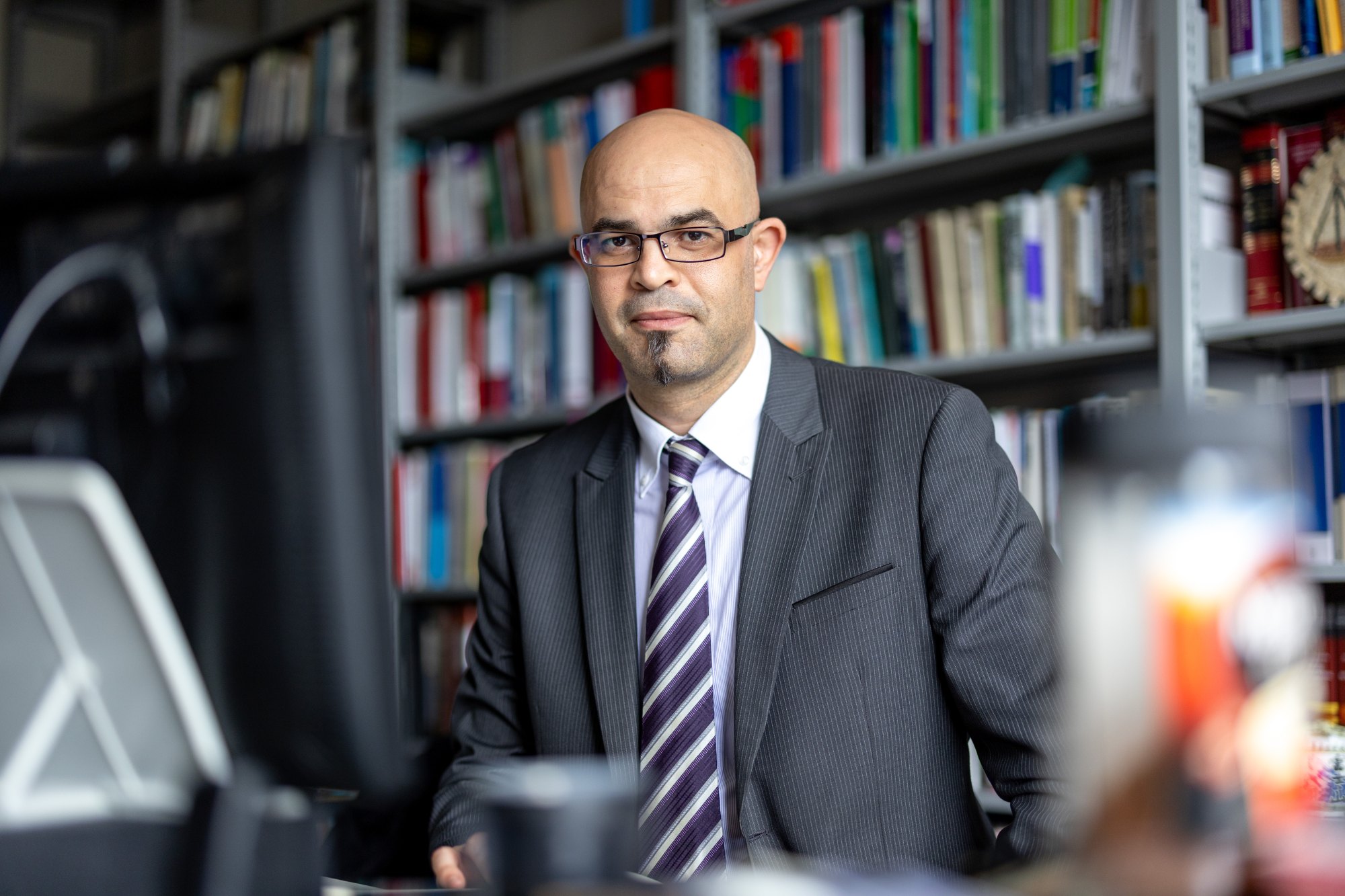
Dr. Beligh Elbalti, Associate Professor, Graduate School of Law and Politics
"Laws and borders: Looking abroad to other nations and cultures to refine one’s laws at home"
Dr. Beligh Elbalti was born and raised in Tunis, Tunisia. He first came to Japan in 2008 to study private international law at the Graduate School of Law, Kyoto University. After obtaining his Ph.D. in 2014, he worked at Kyoto University as an assistant professor and at Doshisha University as a visiting lecturer before assuming his post as an associate professor at the Graduate School of Law and Politics, Osaka University, in 2017. Dr. Elbalti’s main research areas are Japanese law, private international law, international civil procedures, comparative law, and Islamic law.
In the world of law, understanding the nuances and complexities of legal systems across borders is crucial. Not only is it important when dealing with international legal procedures, but studying the approaches of different jurisdictions can give insights into the strengths and weaknesses of our own legal frameworks, ultimately fostering legal innovation and reform. Dr. Elbalti’s interest in private international and comparative law fields stems from a deep curiosity about how legal systems shape societies and influence individual rights and obligations related to, for example, international marriages and divorces or cross-border dispute settlements.
As an international law researcher, Dr. Elbalti realizes that taking full advantage of studying law in Japan requires language skills to access information from their original sources, understand legal rules in their natural context, and follow ever-changing legal developments and debates. Learning a new language at a late age and adapting to a new culture diametrically opposite from his own has been fraught with difficulties and challenges. However, this has not stopped him from building up his skills and professional network to their current levels. Dr. Elbalti is an editor and author of book chapters and journal articles on comparative law and Islamic law, and he also teaches a number of classes related to his fields of expertise.

Dr. Elbalti enjoys the freedom of working as an academic in the legal field and finds almost no differences in the working atmosphere of the universities with which he has been affiliated. Being comfortable with the Japanese language, Dr. Elbalti has no real difficulty living in Japan, conducting research in Japanese, or actively participating in academic life in Japan. He mentioned that if foreigners in Japan are ready to adapt to the local ways of life, select things they would like to keep from their past, and adopt new values, it is relatively easy for them to integrate into any society different from their place of origin.
When asked about the internationalization and inclusion efforts done by the university, Dr. Elbalti thinks there is still room for improvement. Of course, since the field of law has always been conservative by nature, international law researchers must become familiar with the Japanese language before starting their research here. The Japanese language could be a barrier to the internationalization of this field, especially for researchers who cannot use it; however, this should not necessarily be considered as an obstacle. Interestingly, foreign languages did not prevent Japanese scholars from engaging in intensive international exchange activities, particularly those following the Meiji Restoration. Japanese scholars, either via support from the government or by their own initiatives, have been going abroad to get knowledge and bring it to Japan to develop the country’s legal system as we know it today. International researchers, particularly those from countries whose legal systems are yet to be developed and improved, can do the same to learn about Japanese laws and institutions.
Text: Clement Angkawidjaja/Edit: Christopher Bubb